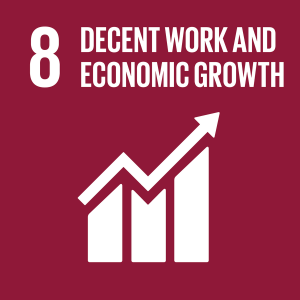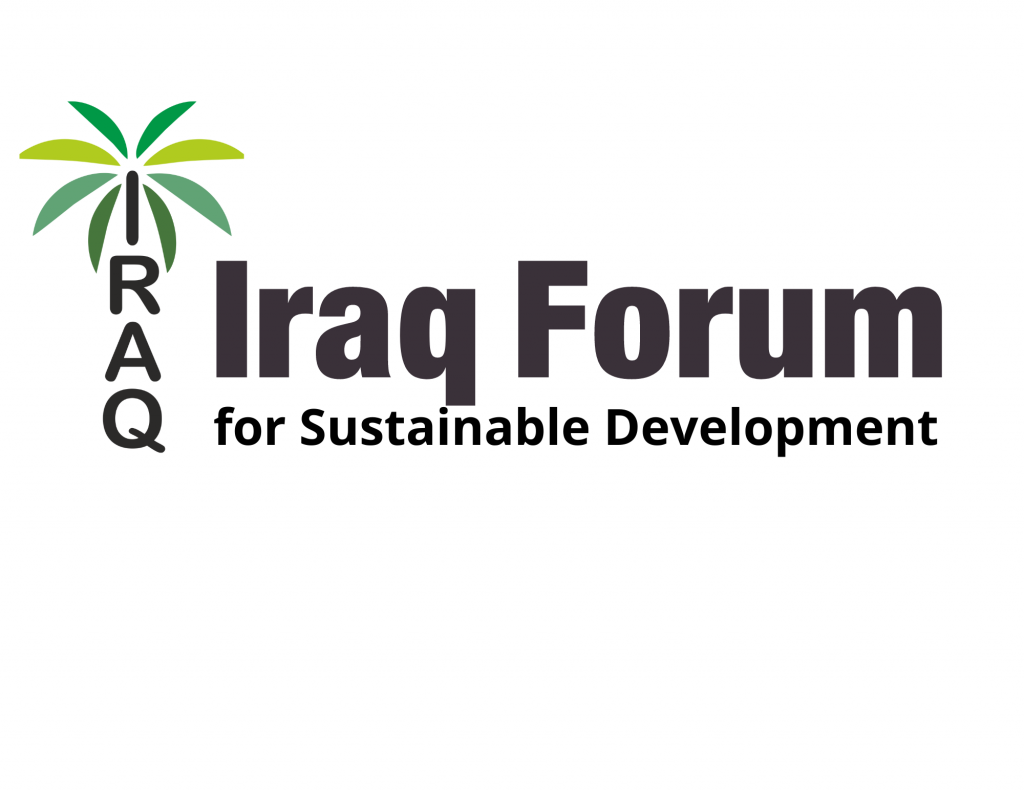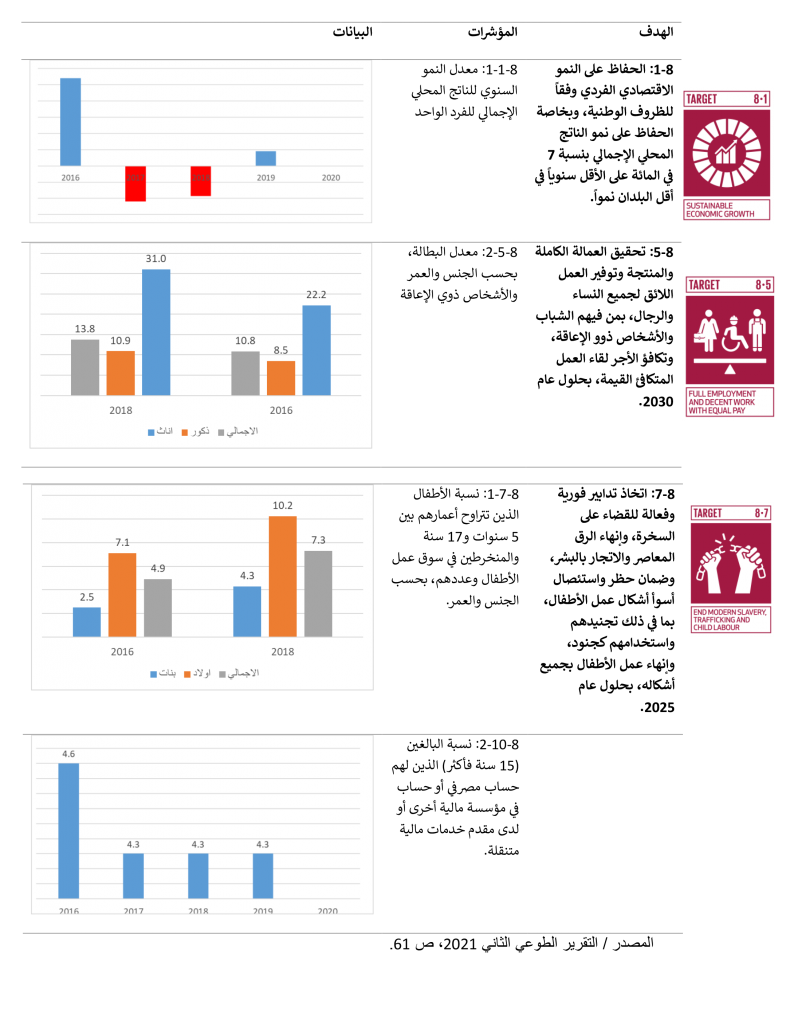Goal 8: Promote sustained, inclusive and sustainable economic growth, full and productive employment and decent work for all


The total unemployment rate for young people aged (15-24) reached about 21.8%, according to the results of the Iraq Family Social and Economic Survey 2012 (IHSES). Iraq has adopted multiple programs aimed at creating sustainable job opportunities for young people, such as:-
– Microcredit program for unemployed youth, especially young people in poor areas.
– Programs for training and rehabilitating the beneficiaries of small loans.
– Allocating an amount of more than one billion dollars by the Central Bank of Iraq for lending in the establishment of medium and small projects, in which the loan amount reaches 50 million dinars, with few interests in the sectors of industry, agriculture, trade, housing, education, health and tourism.
– Programs of projects with integrated activities for the employment of women in the countryside.
– Business incubator programs to provide training, financing and services to support small projects, especially people, according to the comparative advantage of the urban area.
– Motivating graduates of agricultural and veterinary colleges and colleges, and agricultural preparatory schools, to establish agricultural projects and companies that provide job opportunities in the countryside, benefiting from Law No. 24 of 2013.
– Labor-intensive employment programs to provide urgent job opportunities for the displaced and returnees in the governorates and victims of terrorism after rehabilitating and training them to ensure their return to society (this includes granting small loans).
The economy still faces significant challenges; this is due to rentierism, which is the syndrome of the economy and its dependence on oil at a rate of (95%) in the gross domestic product. Compared to other sectors, these problems are the result of a series of variables, especially with regard to the security situation since the terrorist groups occupied a number of regions and governorates, the deterioration of the security situation and the smuggling of oil that occurred at the regional level, in addition to the fact that the risks of international oil prices are the first threat that affects the output of Local Iraq, as a result of its dependence on this one sector, makes it vulnerable to many risks at the macroeconomic level.
Iraq needs to implement an integrated socio-economic reform program, which begins with improving youth training opportunities, reducing the unemployment rate among them, stimulating immediate and long-term international and local investments, and developing infrastructure and reconstruction. A well-thought-out approach can achieve these three goals at once, and if these measures receive sufficient international confidence and sufficient support from local partners, a mixture of public and private investments can be obtained to create investment companies/investment funds. At the same time, the remaining capital can be diverted towards a focused plan for infrastructure development.

